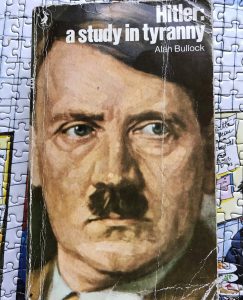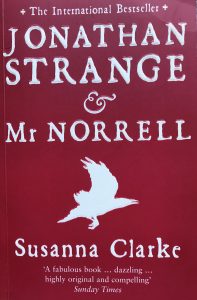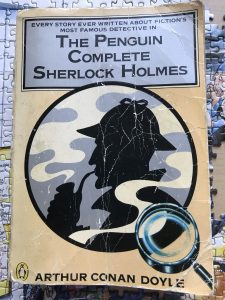The Bibliophile’s Curse

I am, for good or ill, a relatively slow reader so these classics from my younger days come with an opportunity cost attached: each one is a significant investment in time, to be read at the expense of something perhaps equally worthy. The list is long and getting longer as time passes… I have succumbed to the bibliophile’s curse: the terrifying realisation that there will actually never be enough time to finish the ‘to do’ list.
Diogenes
First things first: I don’t read enough fiction. It’s not that I don’t try. I do, I really do. Disregarding Christopher Hitchens’ witty riposte to the old adage that everyone has a book inside them (actually said by Hitchens in relation to autobiographies and memoirs, it seems), I am not immune to the urge to write fiction: it is the middle-of-the-back itch that remains unscratched. So I know that I really ought to be immersing myself in the form. After all, isn’t the experts’ advice always the same: read, read and read some more?
Besides, who needs a reason to pick up a novel? I love words. I am in awe of skilful writing, regardless of genre. I enjoy a good story well told, and I delight in piecing together well-crafted, meandering, multi-layered plots. And yet, for all my good intentions, a familiar pattern invariably repeats, like a Newtonian law of reading: barely have I negotiated the opening chapters of a novel before the gravitational pull of non-fiction, usually something historical, political and/or biographical, becomes irresistible.
I hold learned and literary types in ridiculously high esteem, if for no other reason than their assumed ability to handle the question: what should I read next? An adjustment to my work-life balance two years ago created significant additional reading time: a wonderful opportunity but also a source of frustration, as bookish retirees the world over have doubtless discovered. So many intriguing literary avenues along which to wander for the first time; so many interesting new titles to explore, even down the relatively well-trodden paths of modern and contemporary history.
At the same time, there are books upon books shouting out to be re-read. Perhaps I didn’t really appreciate or grasp them first time around. Maybe they are just so bloody good. They are here now, sitting impatiently on the shelves around me, vying for my attention. I am, for good or ill, a relatively slow reader, so these classics from my younger days come with an opportunity cost attached: each one is a significant investment in time, to be read at the expense of something perhaps equally worthy. The list is long and getting longer as time passes: to pick a random selection, Volume III of Bullock’s biography of Ernie Bevin (900 pages), Bullock’s earlier biography of Hitler (800 pages), Michael Foot’s two-volume biography of Aneurin Bevan (1100 pages) and Kenneth O Morgan’s history of the Attlee government (a mere 500 pages). I have succumbed to the bibliophile’s curse: the terrifying realisation that there will actually never be enough time to finish the ‘to do’ list.
A word about my reading habits. I read every day and usually have three texts (one of which is the daily newspaper) on the go. The ‘classic’ slot kick-starts a typical day, the theory being that my mind is at its freshest first thing in the morning. Hatched as a way of negotiating War and Peace, the plan was then to tackle Dickens in chronological order, having been drawn in by David Copperfield. However, after The Pickwick Papers I was immediately sidetracked by Tess of the D’Urbervilles (terrific) and The Rainbow (a real struggle). Now this pre-breakfast window is used for anything I consider too intense or ‘high-brow’ to be my main read of the day. For the last three months, I have been working through Leszek Kolakowski’s three-volume Main Currents of Marxism. My ‘main’ read — picked up at various points of the day — alternates between non-fiction and fiction, probably on something like a — crikey — 5:1 ratio.
It’s not that I don’t enjoy reading fiction, popular as well as so-called ‘middle-brow’. Opening Stephen King’s 11. 22. 63 was like being transported back (sorry) to my teenage years, lapping up King classics such as Carrie, The Shining and Salem’s Lot for the first time. Gripping, all of them – or so it felt to my fourteen-year-old self. To experience the frisson that comes with not wanting to put a book down — rushing home from wherever, desperate to discover what happens next, recklessly staying up late to devour another chapter. To suffer the exquisite torture of reading a book that is almost literally unputdownable, at once exciting and excruciating. It’s the best kind of legal high, recommended for young and old alike.
It was the horror genre that weaned me away from football and music magazines and hooked me instead on reading books for pleasure. Back in the late ‘70s, virtually all horror films were certified ‘X’ (re-labelled as ‘18’ in 1982). This was before home video so, as a teenager, they were off-limits at the cinema. But no such restriction existed on books; the horror section of Wigan’s main bookshop quickly became a regular stop-off during Saturday-afternoon trawls of the town’s record shops. Stephen King was an early favourite, though I eventually tired of his formulaic writing style, as were James Herbert and even Dennis Wheatley from a different era. William Peter Blatty’s The Exorcist scared the shit out of me. Impossible to see at the cinema, of course, but nobody even lifted a disapproving eyebrow at the bookshop. Speaking of Wheatley, black magic films, as opposed to gory horror, were more likely to be shown on television. I consider The Devil Rides Out as the acme, Christopher Lee as the noble white knight playing wonderfully against type.
And so to The Rule of Four by Ian Caldwell and Dustin Thomason. Why this particular book — and why now?
Cover quotes from The Independent and The Observer, plus the accompanying back-page blurb, did their job in piquing my interest, though references to The Da Vinci Code were mildly off-putting and any combination of words — usually involving ‘effortlessly’ or ‘seamlessly’ — about weaving together past and present must qualify as a cliché by now. Anyway, Kate Mosse has since set the back-and-forth-in-time bar dizzyingly high with Labyrinth. The Rule of Four has a modern-day Princeton University setting but links back to Renaissance Italy.
Although modern history has always been my passion, I have strayed with increasing confidence over recent years from the familiar world of twentieth-century politics. Well-researched historical fiction is an accessible and enticing way into other historical worlds and, if the writing itch is ever scratched, my novel will likely be — at least in part — historical. As an aside, Jim Naughtie’s recent Meet the Author interview with Alison Weir was illuminating. An acclaimed (Tudor) historian who inhabits both writing worlds — fiction and non-fiction — it was fascinating to hear her discuss the different disciplines and methodologies involved.
Wolf Hall and Bring Up the Bodies hold my attention far better than a David Starkey tome, though this may merely reflect my low opinion of acerbic, odious, right-wing historians. The depictions of nineteenth-century England in Jonathan Strange and Mr Norrell and The Essex Serpent are enchanting. Simon Sebag Montefiore’s One Night in Winter (set in the Soviet Union) stands out, as does more or less everything — past or present — by Robert Harris. There’s Sebastian Faulks, of course. Human Traces may well be my favourite novel: dense, complex and challenging, it perfectly captures the intellectual temper of the times. I also have a particular penchant for time-travel stories, whatever the medium: Stephen Fry’s Making History and Ben Elton’s Time and Time Again are bona fide page-turners.
Having first engaged with John le Carré aged seventeen via Tinker, Tailor, Soldier, Spy, I am drawn to the puzzles, politics and moral ambiguities of the espionage world. The plot of The Rule of Four revolves around a historical mystery – more precisely, a secret hidden within an arcane Renaissance text. Mainstream television usually leaves me cold but I make time for well-written mysteries and detective dramas – the likes of Inspector Morse (plus sequel and prequel), Poirot and Jonathan Creek. The recent Maigret reboot on ITV, with Rowan Atkinson as the title character, is terrific. Lucy Mangan in The Guardian dismissed the pilot as plodding and wooden (‘leaden’, to be precise), but I found it to be deliciously dark and broody.
I am also a Holmesian of sorts. Watching re-runs of Jeremy Brett’s Holmes a couple of years ago found me reaching again for my dog-eared collection of the original Conan Doyle stories. The Name of the Rose is another satisfyingly dense and intricate novel (complete with a sprinkling of Sherlock Holmes references) that thoroughly merits a re-read. Umberto Eco was, of course, a polymath — an expert in semiotics and aesthetics as well as medieval history and much else besides. In other words, a learned and literary type. My kind of writer.
And so, back to Elizabeth I by Anne Somerset. I am currently on page 204. What’s next on the ‘to do’ list, I wonder…




Man, can I ever relate to this.
And it’s not just for books – it’s for albums, films, places, experiences, etc.
It’s now referred to as FOMO – “fear of missing out”.
All one can do is a) employ good time management skills, and b) replace that anxiety with gratitude for what we’re able read, see, and enjoy.
Darren, you write how I could only ever dream of writing.
My genre of books is totally different to yours, more nature and animal orientated. So unless you would like me to recommend the likes of Chris Packham:Fingers In The Sparkle Jar, or even a bit of Bear Grills! Other than that that a bit of Lee Child, Harlan Coben. Recommendations I have invested in are Paulo Coelho, Iain Banks, Philippa Gregory, Larsson, all still sitting on the shelf waiting for time to read them. Maybe tempted by Tess at some point as so many people seem to love it.
Thanks, Lisa – I appreciate you taking the time to read the article and to reply.
All recommendations gratefully received! Animal Farm and Watership Down (which would probably turn me into a blubbering mess if I read it now) are the nearest thing to ‘nature’ books I own…and The Wasp Factory, if that counts!
I agree with you about ‘Tess’. It seems to be up there with Wuthering Heights (yes) and Pride And Prejudice (still quite a long way down the ‘to do’ list).
Darren, I must have mentioned to you Ken Follett’s Century Trilogy starting with Fall of Giants; if you haven’t read these yet they need to go to the top of your list! x
I’m not sure if you have ever mentioned it to me directly but I have seen your comments on Goodreads about Ken Follett books, I think. I have bought (but not yet tackled) The Pillars Of The Earth and World Without End. Are they part of the trilogy? x
You haven’t mentioned “Captain Corelli’s Mandolin.”
That blog’s on the way. The working title is ‘Film adaptations of great novels that I was warned not to watch by trusted friends but whose advice I foolishly ignored’.
Such a well crafted piece of writing Darren; I am in awe of your skills as a writer! You explained yourself so well and I could hear you saying this. I LOVE reading and especially novels. I couldn’t put Wolf Hall and Bring up the Bodies Down and read Natasha’s Dance (you gave me this) twice.
I eagerly await your historically themed book. xx
Thanks for replying, Barbara x
I know how much you love reading: I always enjoy seeing your ‘Goodreads’ mini-reviews on Facebook. I don’t know whether the book will ever happen. I’m not sure I am imaginative enough to create something sufficiently original (left-brain/right-brain stuff). Every day I hope for that spark, that initial strong idea.
Go for a modern historical/political theme, your writing is so lucid and your understanding of politics sharp. Have you read Austerlitz by W.G. Sebald or Beware of Pity by Stefan Zweig? I will await news of publication. x
No. Thanks for the recommendations – I will look out for them.
Also read ‘All the Light we cannot see’ by Anthony Doerr, set mostly in Paris in WW2. Brilliant! x
Thanks, Barbara – another terrific recommendation. I will certainly look out for it.
Two books of fiction I could not put down were Swan Song and The Wolfs Hour written by Robert R Mccammon.
Enjoyed that article, my friend.
Thanks, pal – and thanks for the recommendations!
Ps. My recommendation would be ‘The Gulag Archipelago’
Alexzandr Soltzhenitzin
Thanks for the recommendation! I read ‘One Day In The Life Of…’ as a sixth-former…a quick read!
A great read, Darren. Having reached the end, I was just glad to be able to say that I have actually read TWO of the books you refer to and am therefore reasonably pleased with myself.
1 Tess of the D’Urbervilles
2. The name of the rose.
Thanks for the feedback, Kate – much appreciated. I really enjoyed Tess. We read The Mayor Of Casterbridge at school and the story has always stuck in my head.
I really want to re-read The Name Of The Rose. So many layers; I just know I will get so much more out of it on second reading.
I love this! I too read very slow and as I work 9-5 I only read at night and therein only about a chapter as I fall asleep.
I usually have two books on the go…. an actual book and a kindle one, both different. Currently my kindle is some crap by Jeffrey Archer… easy late night reading. Although on there I have some fantastic books by Ranulph Fiennes, David Attenborough, thrillers and craft books.
My BOOK book is …. well I went to the library one-day to renew some books and I sat in the craft section perusing. There was one at the bottom… i couldn’t read the spine… I picked it up… memoirs of Coco Chanel… Oh my word it’s addictive, but I’ve slowed up with it the same as the others. I too have gone back to classics, Tess was a favourite too. My all time favourite though has to be Red Dragon by Thomas Harris. I could go on all day….
Thanks for responding, Diane. Much appreciated!
I didn’t put this but I often have an ‘easy’ read within reach as well, usually for when I am lazily half-watching some not-very-important sporting event on the television. It’s often Rebus. I know Ian Rankin has a legion of fans but I’m not seeing much beyond your average detective story. Rankin is on record as saying he only really got into his stride as a writer with (I think) the eighth book (Black And Blue) and I’m on the sixth…so maybe things will change.
I have resisted a kindle – I just like the feel and smell of a real book too much!
Darren I also fall to the curse. I have a wardrobe in the garage of books on my list. So Wolf Hall was worth It?
I know what you mean about formulaic writing. Harlen Coben did that for me. I don’t read such high brow stuff as you do but i’d always be happy with recommendations ?
I have never made an actual physical list as such. The nearest thing has been scanning those ‘one hundred books you must read’ lists that occasionally pop up on the BBC and elsewhere. But I am wary of lists like that and such books will end up being ‘classic’ not ‘main’ reads. I go where I want to go, not where I feel I ‘ought’ to go, if that makes sense. I believe strongly that people should read what they want to read, not what they feel they have to read. I refuse to feel bad about not having read stuff that features on a ‘books you must read’ list that has been put together by…well, who exactly?!
As recommendations go, I love everything I mentioned in the article and plenty of other books besides. But it’s just my taste. Someone else might just as easily hate the stuff I enjoy!
I got a bit lost to be fair Daza, Dave read it and said that he understands the pain you have gone through to get there. He feels he has gone through the same experiences reading some of the same books that you have, but he feels at the end of the day whether you love Westlife or Elbow, books like music and art, are their to be loved by all. And I agree ?
Thanks, Ann. I certainly agree that people are entitled to read what they like and listen to whatever music they like etc. It’s all a matter of subjective taste. The ‘curse’ – if that’s even the right word – is to do with time. If I were the adventurous type, I would have a 100-item bucket list and be fretting about how many I could tick off!